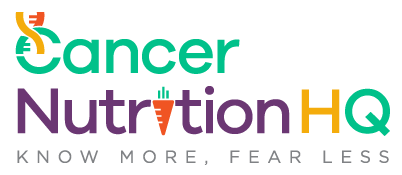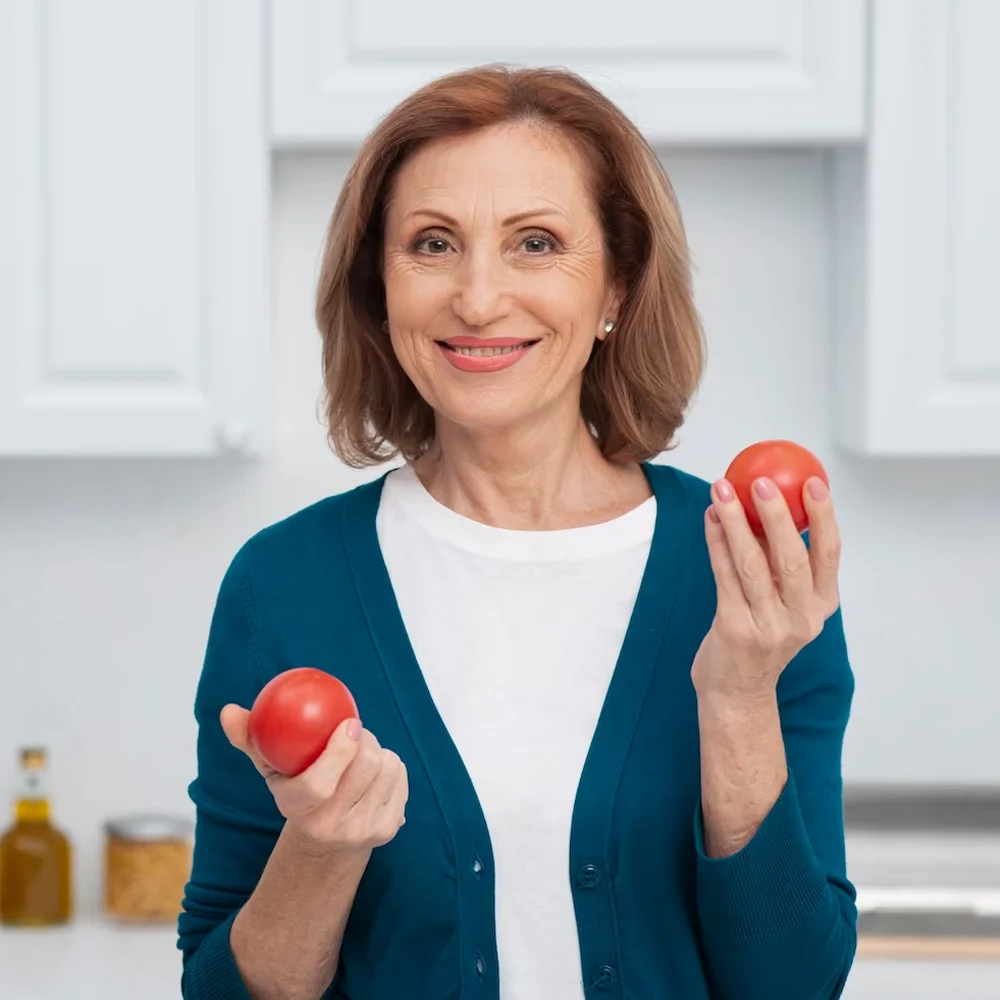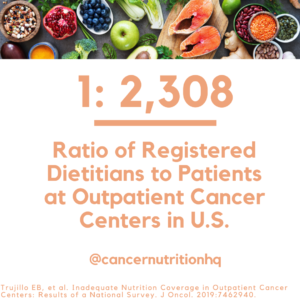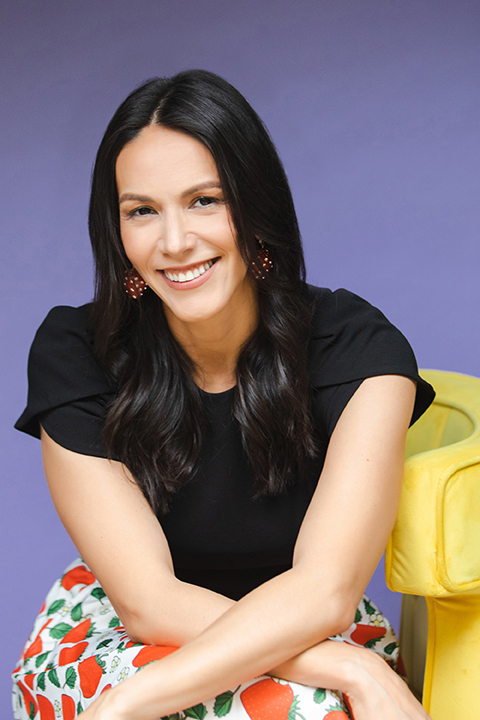If Nutrition Is So Important During and After Cancer, Why Aren’t Most Patients Receiving Adequate Nutrition Support?
Was the extent of the nutrition information you received during treatment a pamphlet, a general statement of “eat a well-balanced diet,” or simply told to “eat whatever you want?” You are not alone in your experience. Studies have shown that patients receive limited nutrition information from their oncologists, and when information is provided, the advice is typically very limited and general. One survey of nearly 3000 cancer patients and survivors reported that 70% felt they lacked information on the relationship between nutrition and cancer, and only 12% felt they had received enough information on nutrition during their care.
Patients want the information but aren’t receiving it from their healthcare team, and often seek out information online which can be confusing and conflicting. I’m sure that is frustrating, but it’s important to consider the role of the oncologist in your care and their level of expertise.
It Takes A Team
Should your oncologist know all the latest nutrition science or would you rather they be most knowledgeable on the most advanced treatments so they can provide a safe, effective, and personalized treatment plan? Just like you wouldn’t expect your oncologist to provide physical therapy, oncologists shouldn’t be expected to provide a series of one-on-one dietary consultations to meet someone’s individualized nutritional needs. It’s just not feasible, practical, or cost-effective. That’s why there are teams of specialists involved in your health care. You likely saw several practitioners through your treatment including surgeons, a medical oncologist, radiation oncologist, your primary care provider, nurses, social workers, etc.
It takes a team of experts and practitioners to provide you the best care. Registered dietitians are experts in nutrition, but they are frequently underutilized in oncology care. A survey of over 900 oncologists in the U.S. found that although over 68% agreed that interventions for diet, weight, or physical activity should be done by clinical staff with relevant expertise, less than 43% referred patients to a dietitian to discuss healthy eating always or most of the time.
Shortage of Nutrition Support
Medical nutrition therapy delivered by a registered dietitian can benefit both functional and clinical outcomes, helping patients adhere to treatments that improve survival. Comprehensive cancer centers usually have several dietitians, but that is not the norm in other treatment centers. And even if a center has a dietitian, the likelihood that a patient will see a dietitian is low. A survey of multiple cancer centers in the U.S. found some sobering statistics:
The Barriers of Health Insurance
If nutrition is so important, why aren’t there more dietitians in cancer centers? Although this is a complex question, one reason could be the lack of insurance reimbursement. Often, the cancer centers or hospitals are paying for the dietitians since there is limited insurance reimbursement of nutrition services provided by a dietitian. Medicare does not cover appointments with a dietitian for oncology purposes; Medicaid coverage varies by state, but generally is very limited. Insurance plans may require a referral or only allow a limited amount of appointments with a dietitian. Even if insurance does cover dietitian services, some private-practice dietitians won’t accept insurance because it can be challenging to become an in-network provider, manage billing, and wait for the slow reimbursement process. Unfortunately, this results in patients, already facing the financial burden of cancer care, having to pay out of pocket to see a dietitian.
Filling In The Gaps
The reality is, if a patient wants nutrition support they will need to ask for it. So where should one turn? An online health coach? A personal trainer? A book? My next blog post will discuss the differences between a nutritionist and a dietitian and the importance of finding a qualified nutrition expert.




